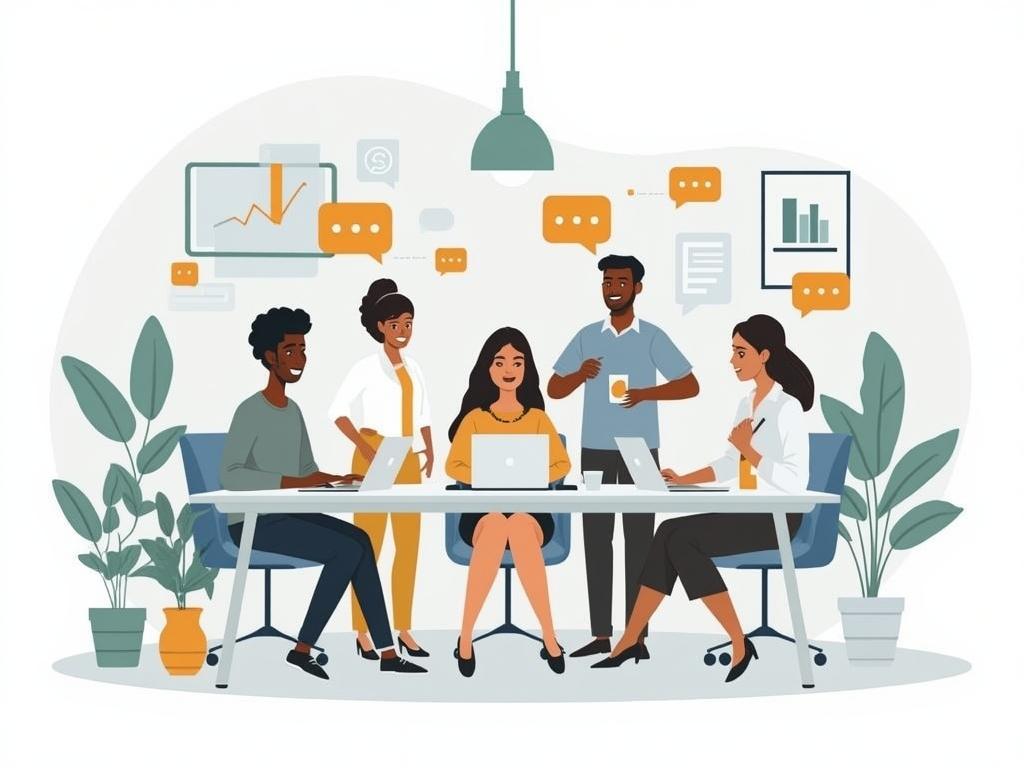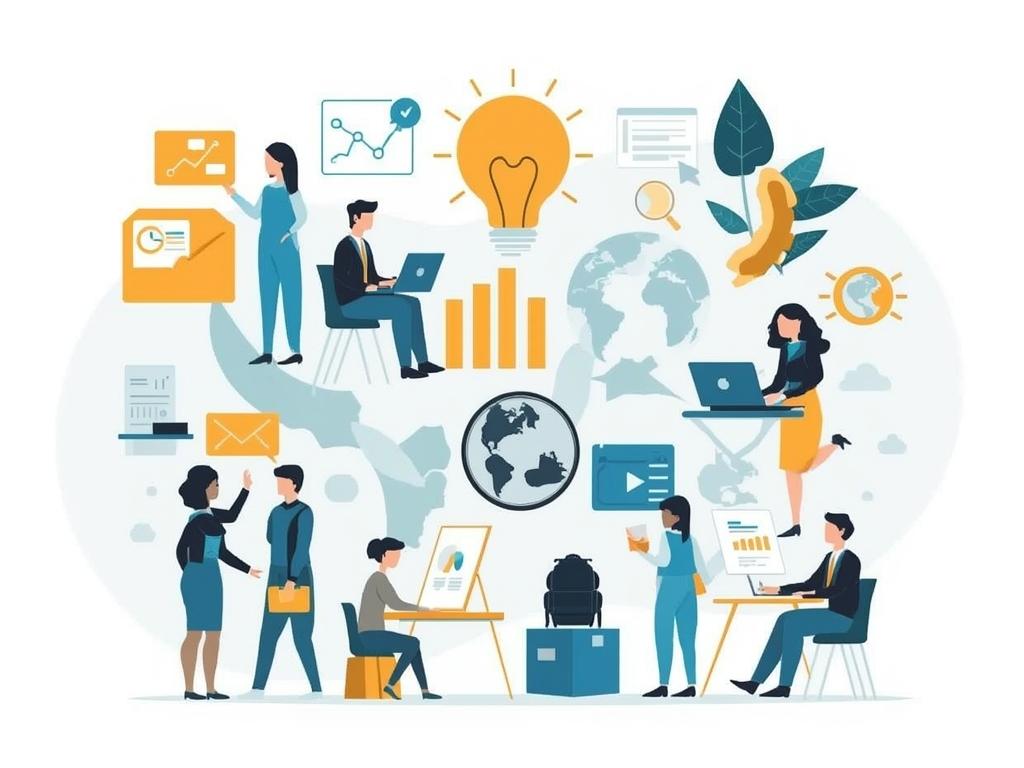What Is Active Listening and Why Does It Transform Relationships?
Have you ever been in a conversation where you felt the other person wasn't really listening? Perhaps they were just waiting for their turn to speak or were distracted by their cell phone. This experience, common in everyday life, reveals a crucial difference between listen e active listening. While the former is passive, the latter involves presence, intention and openness to understanding the other beyond words.
Active listening is a skill that goes beyond the physical act of picking up sounds. It requires mindfulness, empathy e genuine curiosity about what the interlocutor is sharing. Imagine a colleague venting about a problem at work. Instead of interrupting with ready-made advice, you ask: "How did that make you feel?" or "What worries you most about this situation?". These questions show real interest and create a safe space for expression.
Why is this so powerful? People who feel listened to tend to trust more, collaborate better and strengthen bonds. In the professional environment, leaders who practice active listening have more engaged teams. In personal relationships, it prevents misunderstandings and deepens intimacy. A Harvard Business Review study ([link here](https://hbr.org/)) showed that employees who feel listened to are up to 5 times more likely to innovate.
But how do you develop this skill? Start by observing your current habits. Do you often formulate answers while the other person is talking? Are you easily distracted? Recognizing these patterns is the first step to changing them. The good news is that active listening can be practiced - and the results are worth it.
The Pillars of Active Listening: Attention, Empathy and Non-Judgment
To really listen, we need more than silence. Three elements are essential: focused attention, emotional empathy e suspension of trials. Let's explore each of them.
A focused attention means directing 100% of your energy to the present moment. Turn off cell phone notifications, maintain eye contact and observe the other person's body language. For example: if a friend talks about a break-up with their shoulders slumped, their posture already reveals more than their words. Show that you are present with small gestures, such as nods or a sincere "I understand".
The empathy involves putting yourself in the other person's shoes without imposing your own experiences. If someone says "I'm overwhelmed at work"avoid answers like "Ah, but everyone else is!". Instead, validate the feeling: "That must be very difficult. Do you want to talk more about how you've been coping?". Empathy doesn't require you to agree, just to recognize other people's perspectives as valid.
Finally, the non-judgment is perhaps the most challenging pillar. We all have unconscious biases that filter what we hear. Train yourself to suspend previous opinions and listen with an open mind. For example: if a relative expresses a different political view, take a deep breath and ask "What made you think that?" instead of hitting back. Listening doesn't mean agreeing, but respecting.
Practice these pillars in everyday conversations. It may seem artificial at first, but over time it will become second nature. How about giving it a try today?
Common Barriers to Genuine Listening (and How to Overcome Them)
Even with the best of intentions, certain habits sabotage our ability to listen. Identifying them is crucial to changing. Let's take a look at the main villains:
Advertising
1. The Mentality of "Fixing" the Other
It's natural to want to help by offering solutions, but often people just need to get things off their chest. Imagine a friend saying "My boss doesn't value my work". If you answer "You should resign!"you may be ignoring the crux of the matter. Try saying "What's it been like dealing with that?" before suggesting actions.
2. Technological and environmental distractions
A study by the University of California ([link here](https://www.ucla.edu/)) revealed that we check our cell phones an average of 150 times a day. How about leaving the device in another room during important conversations? The environment also influencesA noisy café makes it difficult to concentrate. Opt for quiet places when possible.
3. The habit of interrupting
Have you ever finished someone's sentence because you thought you "got it"? This cuts off the connection and sends the message that your ideas are more relevant. Practice pausing for 2 seconds after the other person has finished speaking. Silence is part of listening.
4. Premature judgments
Labeling the other person while they're talking ("that's drama", "he's exaggerating") closes doors to understanding. Replace it with genuine curiosity. If a colleague criticizes a project, ask "What specifically are you worried about?" instead of assuming that it is "negative".
What barriers do you recognize in yourself? Choose one to work on this week.
Practical Techniques to Improve Your Listening in Daily Life

Theory is important, but practice transforms. Here are simple strategies for incorporating active listening:
1. Paraphrase to Confirm Understanding
Repeat what you've heard in your own words: "So you're saying that...". This avoids misunderstandings and shows commitment. Example: if your partner says "We don't have time together"Answer "You're missing more quality time, is that it?".
2. Use open questions
They encourage digging deeper. Instead of "How was your day?" (which generates short answers), try "What was most significant about your day today?". Avoid questions that already carry your opinionsuch as "Don't you think...?".
3. Observe non-verbal signals
Facial expressions, tone of voice and posture reveal unspoken emotions. If an employee says "All right" with your arms crossed and your voice low, something could be wrong. Also communicate with your body: lean forward slightly and keep your arms relaxed.
4. Practice Active Silence
Leaving small pauses encourages the other person to continue. Many fill these spaces out of discomfort, but it is in silence that the most authentic reflections emerge.
How about practicing one of these techniques today? Take note of the results and adjust as necessary.
Active Listening in Conflicts: How to Turn Discussions into Dialogues
Conflicts are inevitable, but the way we handle them makes all the difference. Active listening can turn quarrels into opportunities for growth.
Suppose a couple is arguing about the division of tasks. Instead of "You never help!"try "How do you see the distribution of tasks today?". Exchanging accusations for questions reduces defensiveness. Another tip is to name feelings: "When that happens, I feel overwhelmed. Do you?".
At work, if a colleague criticizes your idea, resist the temptation to justify yourself immediately. Say "Thanks for the feedback. Can you tell me more about your concerns?". This defuses conflict and opens up space for collaboration.
Remember: the aim is not to "win" the argument, but to understand the other person. Even in disagreements, validate the feelings of others: "I know this is important to you".
Active Listening as a Leadership and Teamwork Tool
Leaders who listen create healthier organizational cultures. Employees who feel listened to are more productive, creative and loyal.
Try these practices:
- 1:1 meetingsSet aside 10 minutes to listen to each team member without a prior agenda.
- Bidirectional feedbackAsk for opinions on your leadership style and thank them for their sincerity.
- Inclusive Brainstorming: Encourage everyone to contribute before giving their opinion. Use phrases like "What else can we consider?".
A real case: Microsoft under Satya Nadella prioritized active listening, reversing a competitive internal culture. The result? The company started innovating again ([source](https://www.microsoft.com/)).
Exercises to Train Active Listening Alone or in a Group
Want to go further? Give it a try:
1. Listening Diary: Write down insights from the day's conversations. What did you learn about others?
2. Role-PlayingSimulate difficult situations with a friend, alternating roles.
3. Listening MeditationIn public places, listen to sounds without judging them (train your focus).
Small changes create big impacts. What will be your first step towards becoming a better listener? Start now - the world needs more authentic connections.


